Netflix and Change: Tracking Cultural Flux in Autocracies
“Vikings is no. 1 from all the Saudi men 😂”.
Leila chuckled as we browsed top hits on Netflix. For only 30 Riyals (8 USD) a month, Saudis can tune into stories about uncovered pagans. A global feast of delights are now on offer - from Western films to women’s football.
Rapid cultural change is afoot in Saudi Arabia, a unique experiment in top-down secularisation. But how can we as social scientists study such rapid cultural evolution in real-time, especially in an autocracy?
In this essay, I’ll highlight some exciting new methodologies. Buckle up.
The Saudi Trilemma
The House of Saud’s cultural strategy appears to be addressing a complex trilemma:
Boosting economic legitimacy by growing the economy, expanding tourism, and raising living standards.
Mitigating potential attacks from Wahhabi conservatives.
Maintaining control by limiting liberal dissent.
Top-down secularisation may have been initiated to weaken Wahhabism and undermine popular support for the clerics, while simultaneously raising revenue. But should not be mistaken for wholesale liberalisation; there are still strict red lines.
In 2009, leaked US embassy cables detailed that the Saudi State-owned MBC channel was showing “CBS and ABC Evening News, David Letterman, Desperate Housewives, Friends and similar fare, all uncensored and with Arabic subtitles”.
One informant shared that “The government is pushing this new openness as a means of countering the extremists… It’s still all about the War of Ideas here, and the American programming on MBC and Rotana is winning over ordinary Saudis in a way that ‘Al Hurra’ and other US propaganda never could. Saudis are now very interested in the outside world, and everybody wants to study in the US if they can. They are fascinated by US culture in a way they never were before”.
In 2017, Ahmed Al Khateeb (presently Minister of Tourism) speculated that while Saudi Arabia comprised a mixture of conservatives and liberals, 80% were ‘in the middle’, and this segment enjoyed travelling, cinemas and concerts.
Will it Work? The Uncertainty of Top-Down Secularisation
Could authorizing international concerts, sports matches, and sitcoms actually encourage significant cultural change?
My global-historical analysis of cultural change suggests that if you want social transformation, one of the most powerful mechanisms may be storytelling. Movies, television sitcoms, books, magazines and music can stretch the spectrum of permissibility by celebrating alternatives and signalling wider acceptance. Fiction opens portals to new worlds, making the unthinkable appear achievable, and thereby encouraging wider emulation.
Story-telling works on our shared desire for status and social approval, our inclination to closely observe what peers condone or condemn. Leaping into fiction, indulging our imaginations, we pick up new cues about what is celebrated or shamed.
For Saudis who were already progressive, these changes may signal a bright green light, giving them permission to openly embrace ideas and lifestyles they had previously kept hidden. State endorsement of secularism could embolden those who have long desired change but felt constrained.
This power of prestige and narrative seems to be at the core of Saudi Arabia’s cultural strategy. By introducing exciting new forms of entertainment and media, they’re potentially opening windows to alternative worldviews. The beauty and glamour of big stars may make secular subversion especially enticing, while also providing cover for those who have long yearned for such changes.

Eminem (a rapper replete with profanity) is heading to Saudi Arabia. International stars have also included Post Malone, Bruno Mars, DJ Snake and David Guetta.
Nadia (whose mother is a working professional) is very happy!
“My friends and majority of the people think positively around it. The most incredible part is that these changes didn’t take decades to happen and when they did it was almost surreal”.
Yet, the outcome remains uncertain. Saudi Arabia’s cultural landscape is of course heterogeneous, including deeply religious conservatives. Pushing too far could trigger backlash.
The Saudi Police State
Amnesty, Human Rights Watch, European Saudi Organisation for Human Rights, and BBC have rightly highlighted intimidation, imprisonment, and executions. Both conservatives and progressives have faced punishment.
However - and please do not misunderstand this as justification, I am merely analysing this as a social scientist - this authoritarian context also means that the state can open the gates of secularism, while deterring dissent.
Nadia insists this is positive:
“I think when creating such change, especially with women and their opportunities and newfound independence, there seems to be a little more control on the men’s side because you don’t want things to backfire…
Like inviting women to the workplace and then god forbid have them be harassed and discouraged.
[The state] takes it very seriously. Honestly women may have more power when reporting such crimes. My friend said yesterday that when she goes out and if a man tries to make a move all she has to do is raise her phone. They get scared”.
In 2018, Saudi Arabia criminalised sexual harassment. Two years ago, a civil servant detailed that this includes all intrusive language and gestures, including ‘emojis’. Offenders have been named, shamed and imprisoned. One man was convicted, sentenced to 8 months in prison and fined USD 1,330.

Nadia’s friend was actually blackmailed a few years back, by a jilted suitor. Young and nervous, they went to the police, who were apparently very helpful. He was imprisoned for 3 months. Nadia kindly shared with me the hotline, translated below:
How to study cultural flux in autocracies?
Genuinely, I think this could be one of the biggest cultural shift occurring in the world right now - top-down secularisation on an unprecedented scale. Some believe it will fire-up cultural change worldwide. I’m sceptical, but one Saudi official confidently predicted:
“Where Saudi Arabia goes, the GCC follows.
The challenge lies in how we can effectively study cultural change in an autocracy. People may be cautious about expressing themselves openly due to concerns about arrest or social disapproval.
So, I’m working on developing new tools to study real-time cultural change, harnessing big data on online searches, consumption patterns, cinema attendance, and media streaming. Hopefully, this approach allows us to observe shifts in preferences, to gain a more accurate picture of cultural flux.
Research Ideas!!
Palaeontologists get excited about fossils and footprints. But for those curious about human culture, the modern equivalent is probably our online searches, browsing and social media networks. As we spend more of our time online, we leave digital footprints. Machine learning and big data can help us track these trends at scale - revealing what’s trending, the sentiments in book reviews and social media posts, networks of ideas and cultural trends, as well as huge volumes of data from online bookstores.
Let’s draw back the curtain.
Netflix in Saudi Arabia
Leila was right: Vikings Seasons 1, 2, 3 are all in Saudi Arabia’s top ten.
Violent raids, family loyalty, and fraternal comrades - what's not to love? The show features Viking raids into England, political manoeuvrings, and epic battles.
Gripping, exciting, and distinctly pagan.
Paradoxically, the European setting may actually make the show more palatable to Saudi audiences, as it allows for cultural dissonance while still normalising alternatives. Viewers can watch alternatives, without it threatening their own Saudi identities.
Shahid MBC
Shahid, (شاهد), a Saudi state-owned Arabic streaming platform, offers a fascinating window into the Kingdom’s cultural strategy. In 2019, it boasted 27 million monthly users, and following a 2020 rebranding, it began building a global audience, attracting viewers in North America and Europe.
Intrigued by its potential insights, I decided to subscribe. This move opened up two rich veins of data:
State-backed productions
Popular shows
Shahid's original productions provide a unique glimpse into state-sanctioned narratives. They offer valuable insights into the kind of society the House of Saud is eager to promote.
Take “Cloud Kitchen”. This show focuses on women in the workplace, portraying professional female chefs interacting freely with men. The protagonists, notably unveiled, navigate the complexities of the workplace. This narrative aligns with the Saudi state’s vision, encouraging women to join the public sphere.
What’s Streaming on Spotify?
Spotify’s MENA Managing Director Akshat Harbola explained,
“We launched in Saudi Arabia five years ago, and the last one year has been super strong for us…
There’s not a mature market where everything is completely written down and you know what the trends are; everything is happening and getting created as we speak..
If you look at KSA.. International music is wildly popular.. Our topped streamed artist is Taylor Swift…
If you’re talking about KSA, you cannot ignore gaming — 87% of the people in KSA self-identify themselves as gamers… you won’t find that stat anywhere in the world. And we see that at Spotify as well — 30% of the people on Spotify in the Kingdom stream music on a console while they’re playing games..
The level of institutional support that the sector is getting is unprecedented, you don’t see this anywhere… The top global acts are performing here in Saudi Arabia..
And there’s an emergence of this local music scene.. which is leading to a new brand of Saudi talent…
We have three programmes: [one is] called EQUAL Arabia, which is focused on female artists.. In Saudi, we’ve recently worked with Dalia Mubarak and Zena Emad, and essentially unlocked the fully suite of support that Spotify provides to local, emerging artists anywhere in the world.
Bookshop Best-Sellers
Jarir Bookstore is headquartered in Riyadh, with 59 locations in Saudi Arabia, and their website displays best-selling books, ratings and reviews!
Browsing these books, we can see what Saudi readers are actually enjoying.
Instagram
We can also track the relative popularity of different authors via their instagram followings.
With so much online posting, we can even observe book signings - both the eager fans and conservative commentators (approving gender segregation).
Good Reads
Good Reads, a popular book review website, offers a treasure trove of data on Saudi reading preferences. Through quantitative ratings and qualitative reviews, we can gain insights into the literary tastes shaping Saudi culture.
Osamah Al Muslim’s books have garnered significant attention. His novel “Arabistan Orchards” is set in a pre-Islamic world, and tells the story of a witch who masters sorcery to avenge her father’s killer.
Saudi MBC (Middle East Broadcasting Center) then adapted the novel into a big-budget feature film!
Perfume
“Any woman who applies perfume and passes by people so that they may smell her fragrance is like an adulteress”, states one Hadith.
Women’s use of perfume in public is religiously dubious. But in Saudi Arabia, perfume sales are growing. This whiffs of cultural change.
Cosmetic spending is also rising (overcoming a dip during COVID).
Saudi working women are increasingly working, travelling in the public sphere, and spending money on themselves. The market value of Saudi women’s clothing is now double that of men. A Saudi retail consultant explained,
“Females did not or were not able to work as they are today; they weren’t able to bring back the amount of money at the end of the month. But now they are, and they are young, and a lot of them are unmarried. So, then they are thinking, ‘Great, let’s build something for myself.’”
Tastes have changed:
“Previously, the key product categories for women were mainly evening wear, accessories, and fine jewelry. Now there is more interest in contemporary brands, ready-to-wear fashion, and athleisure coming out of Saudi Arabia because people are getting dressed for different occasions.
They’re getting dressed for the workforce.”
Google Trends: Saudis are searching for ‘permissible’
Google Trend data for Saudi Arabia shows a rise in searches related to permissibility. Many are browsing online, exploring the boundaries of what is ‘permissible’ (يجوز). Amal explained,
“I certainly did [search] to justify listening to music lol. When I was younger, I wanted to listen to music, but my teachers didn't approve and told us it’s all sins. So I went to a religious blog”.
Like many of her friends, Amal wants to have a bit of fun while remaining pious. They are increasingly pushing boundaries: delaying marriage and selectively seeking husbands that support their careers.
‘Permissibility’ (يجوز) is actually one of the most frequent searches in Saudi Arabia, now on par with ‘Eid’, the most important Muslim celebration.
Netflix and Change?
Culture isn’t a fossil preserved in amber; it’s a living, breathing entity, constantly evolving through contestation and negotiation. Every society has its own unique ‘Overton window’ of permissibility - the breadth of ideas and behaviours deemed acceptable. The million-riyal question is: how far can these boundaries be stretched before they snap back with a vengeance? And what tools can most effectively nudge them in the desired direction?
If I were a Crown Prince trillionaire with a penchant for secularisation, I’d bet my petrodollars on the power of storytelling. Invest in captivating narratives that make greater freedoms not just permissible, but glamorous and exciting.
But to be clear, this is a high-wire act: juggling economic ambitions, conservative sensibilities, and iron-fisted control. A delicate trilemma.
The beauty of our digital age is that we can track these seismic shifts without relying on sugar-coated puff-pieces or surveys prone to social desirability bias. Big data has armed us with a Swiss Army knife of analytical tools. Now, we can now peek into collective psyches through Netflix binges, Spotify playlists, and Google searches about what's ‘halal’ or ‘haram’.
Digital breadcrumbs are exceptionally valuable when studying cultural change in autocracies, where traditional surveys might elicit fear. Analysing online consumption patterns and user evaluations helps us to capture the pulse without setting off alarm bells.
I want to develop new tools to track cultural evolution in autocracies.
DM if you want to join.
Critique and comments are always welcome - especially from Saudis.

Related Essays
Further Resources
Akshat Harbola, Spotify’s MENA Managing Director, on the Creative Vibrancy of the Region
Spotify ‘still discovering’ music trends in Saudi Arabia, says MD
Props to the Economist who called it in 2018



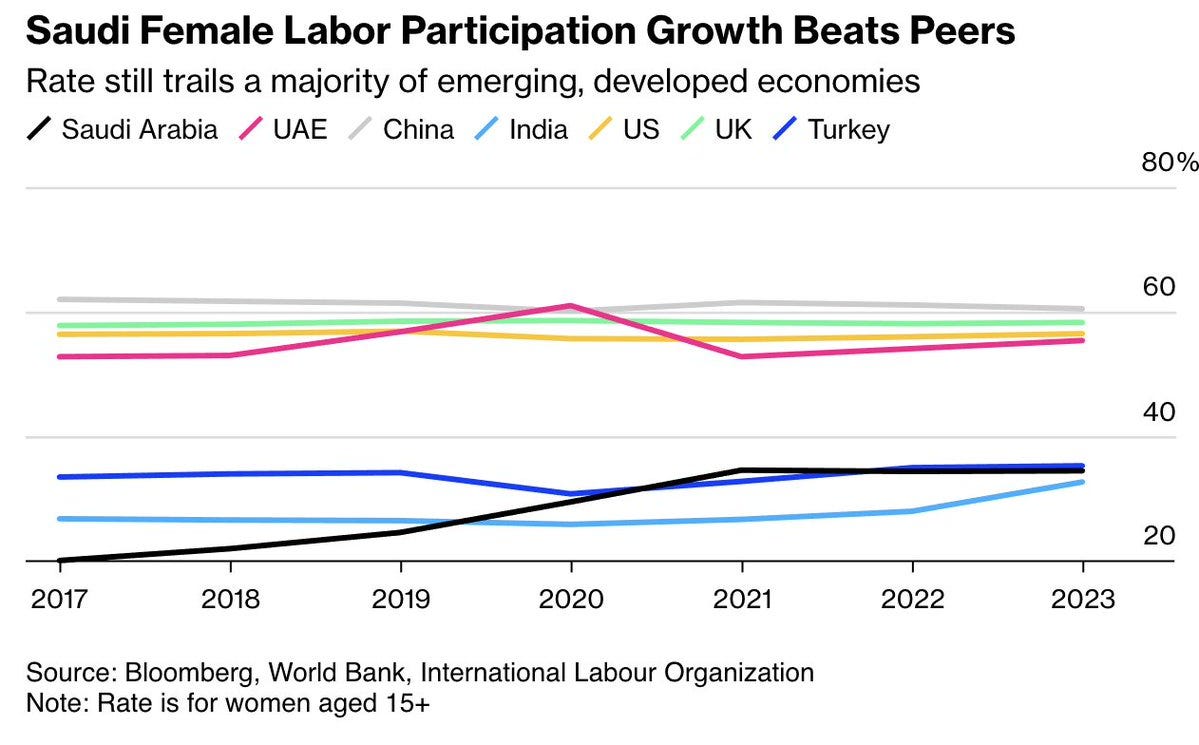







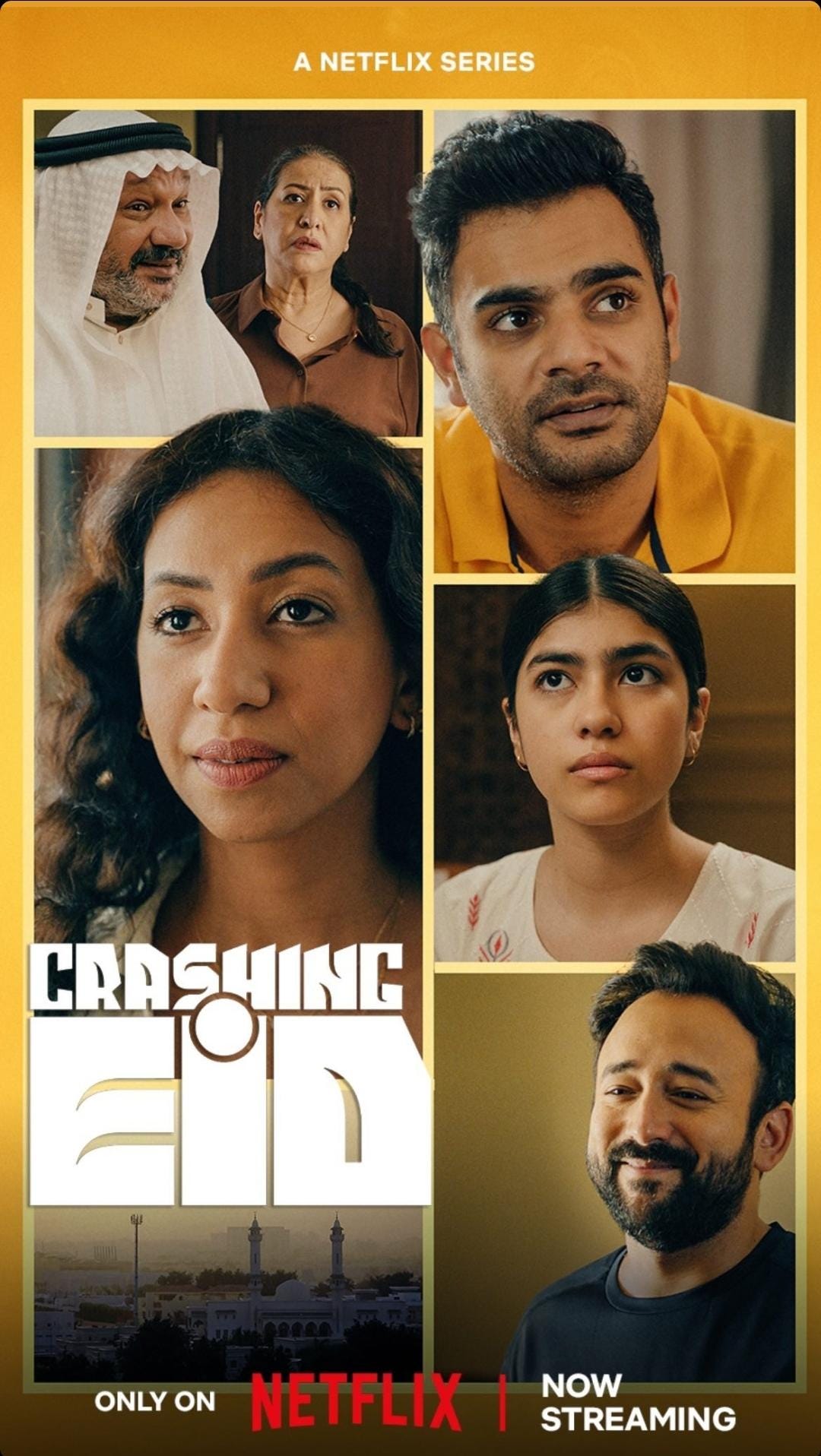
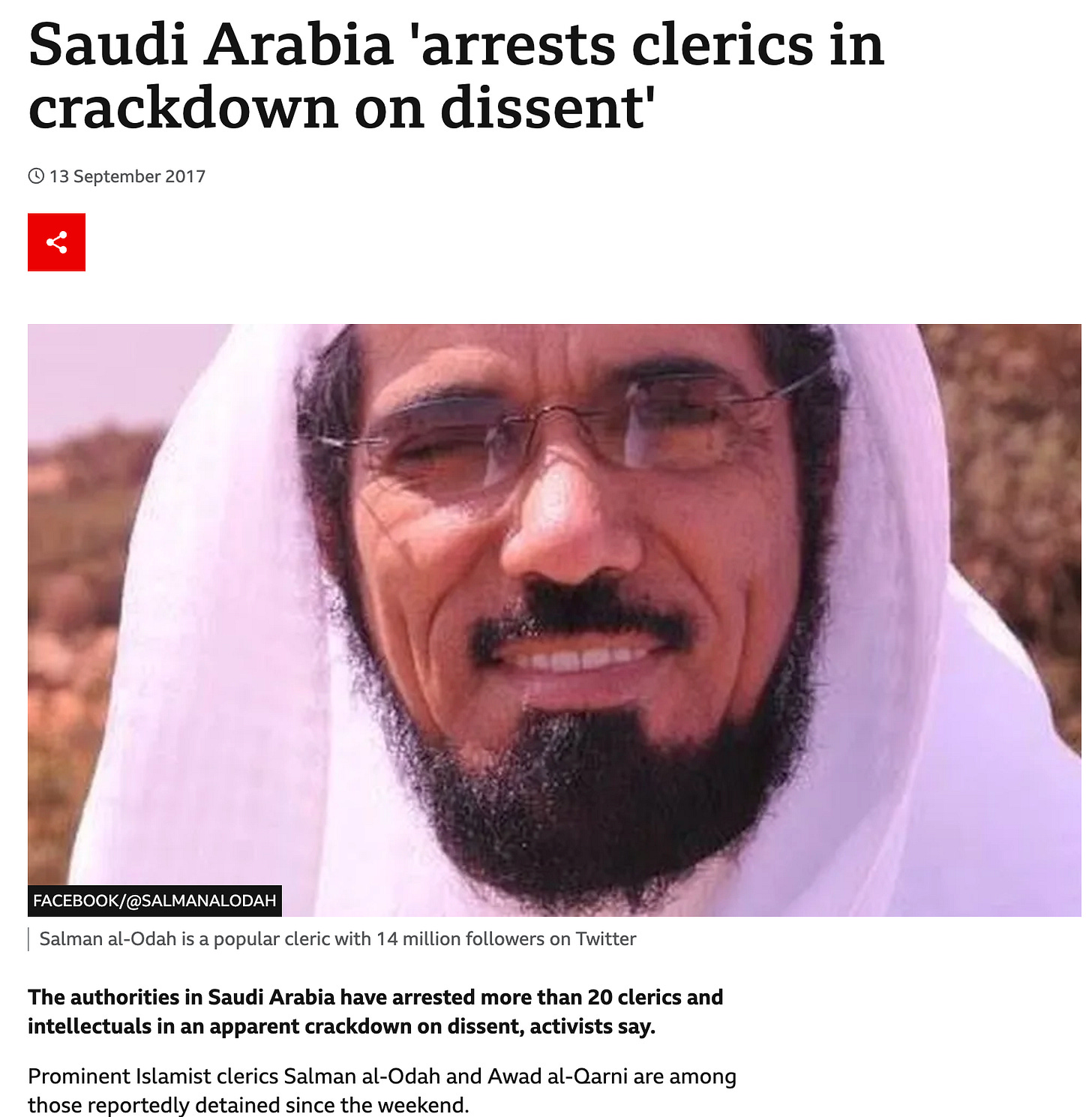
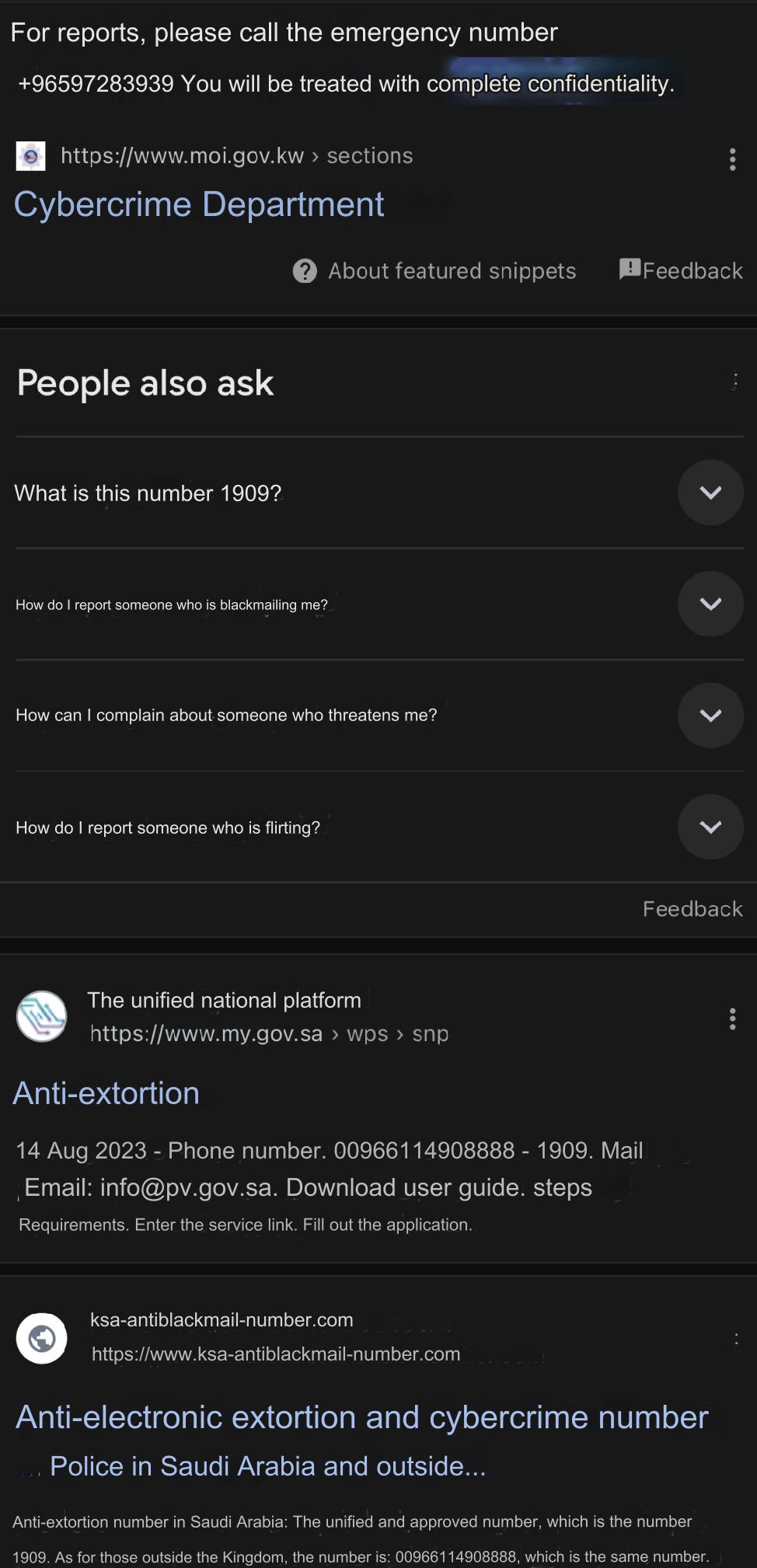







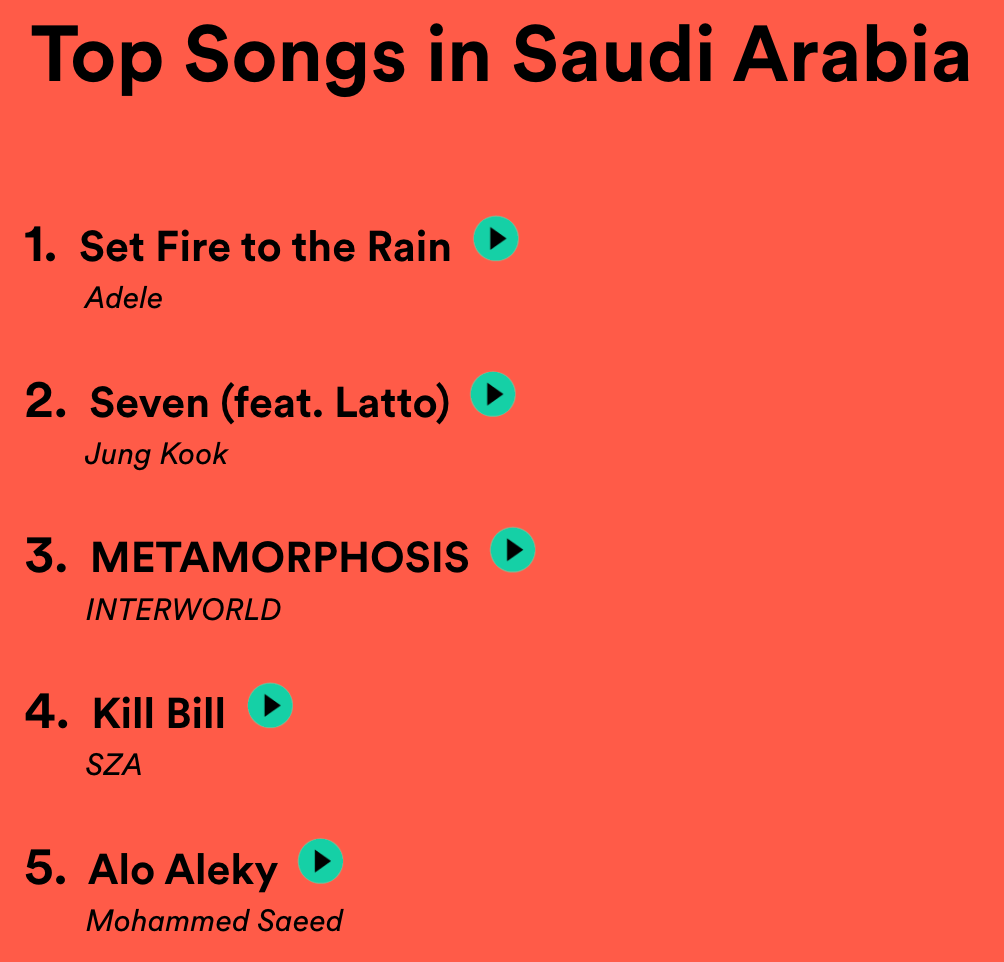
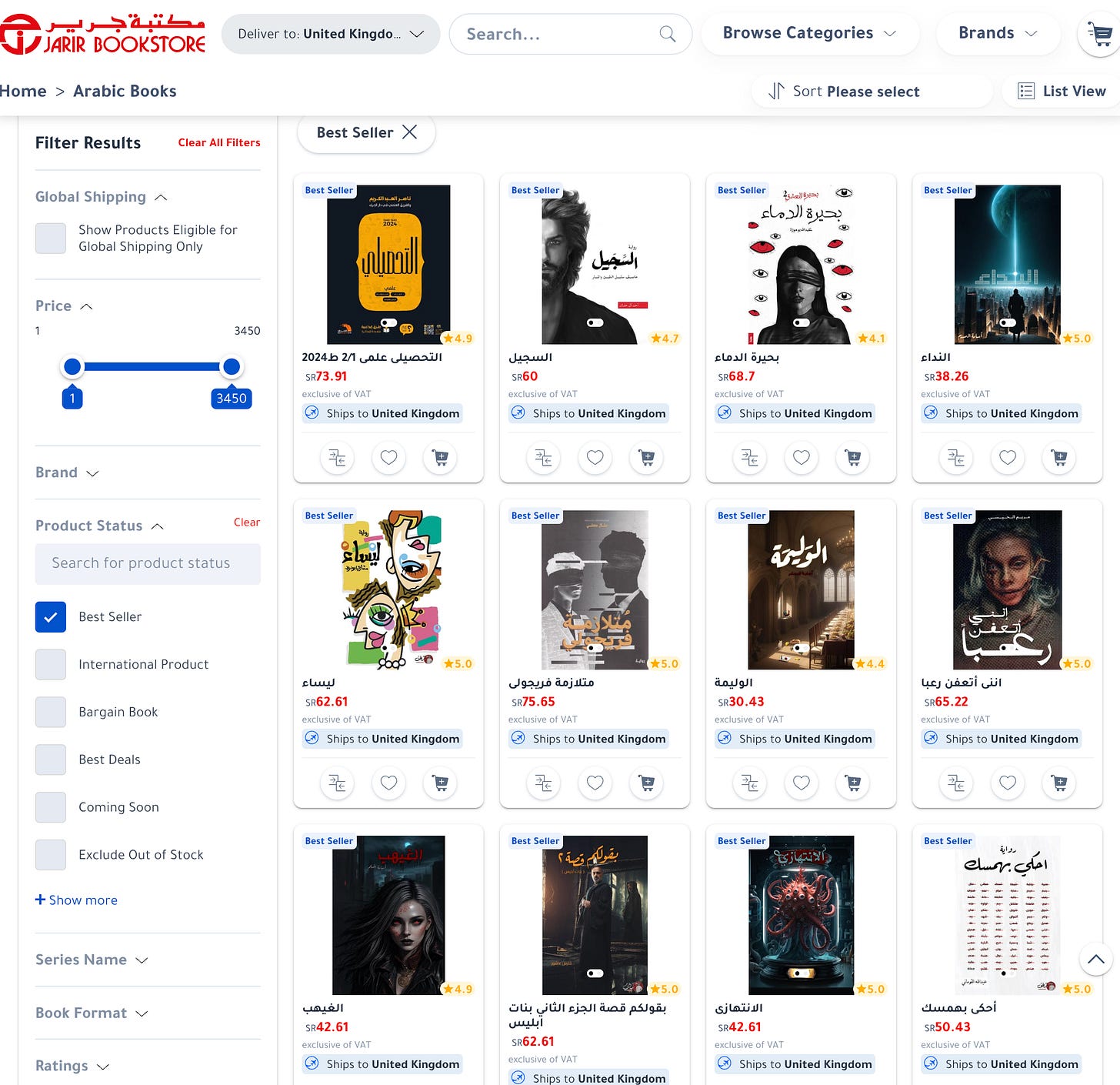













I wonder to what extent these surprising Saudi cultural developments are downstream of geopolitical alignments.
The Saudis are strongly aligned with the US, which is the Power that is associated with and promotes liberal globalism. Countries seeking to maintain and deepen that relationship seek to adopt the hegemon's ideology. It is therefore no surprise that Taiwan hosts East Asia's biggest gay pride parades, since they double as a kind of ward against China. Obviously can't (yet) be that bold in Saudi Arabia but I suspect at root it's the same phenomenon.
The contrast with regimes that have defined themselves in opposition to the US is startling, with Iran having become more brutal about morality policing its women (so the gap between the regime and young urbanites keeps growing ever wider, and in turn requiring them to become more and more repressive), and Russian state-backed homophobia and transphobia assuming runaway characteristics after 2022.
author seems out of touch westerner that just discovered the country for the first time. the idea that Hollywood movies are new is laughable, it was common to find video stores selling movies going back to the 70s and 80s. One could even remember state TV showing a weekly American movie like Rambo when there was only one government TV station before satellites. The gulf states have always been a major market for global entertainment like music, movies, and video games produced by western or Japanese or Korean companies, possibly as big as multiple Latin American countries combined.
if anyone is interested, search google images for "Saudi Arabia book" and you see book covers of camels, oil fields, kings, sand, and women in veils with big black eyes. If you read one you read them all, they are usually written by flyover journalists who show up and visit a few malls and talk to people and get a few quotes. The author seems to do the same thing.
What is funny is there is a very old documentary from the 1960s, and the same talking points about a government that is engaging in modernization and top down reform. you would think this is from last year if it wasn't black and white. https://www.youtube.com/watch?v=IsoTKIgw0c4
I got extremely offended that Vikings being popular is somehow intriguing to outsiders. Imagine if I shook hands with a American and with a straight face said "I was expecting to meet a fat cowboy"
what the author also doesn't get about social science research is once something becomes legible the state will take action to control it. For example when social media was a niche thing, discourse was much freer, now post arab spring the state has effectively controlled public discourse by full time users who are paid to be engaged online as well as giving orders to people to not post something outside of state control, for example someone posted about a bad hospital service he had and got a call and was ordered to delete his viral post that became the discussion of the day.
I read on the authors twitter account she is interested in visiting Saudi Arabia. So I can tell you what's going to happen, the government will take her for a tour showing her all the women with jobs and who are happy to work, and meet many middle class families who like the new entertainment venues. Then the government also has a shock tour program where western visitors get to meet the most crazy salafis and let them speak their mind about social issues and let them say offensive things to a westerner. This has been a common tactic the government has been using to build their narrative, which is we are a open minded and enlightened elite who are struggling with a backward and reactionary population that isn't capable of self government and it is better for us to cull them. Although maybe her visit won't have the common shock tour given that almost anyone willing to say anything crazy has already been imprisoned.
Gender relations in Saudi Arabia is definitely worth researching, but so far everything I have read is regurgitated talking points from your standard feminist academic which is unfortunate. In fact I would say the opposite, if someone is writing about Saudi Arabia, and mentions women or oil, it should mean the author actually doesn't have anything interesting to say.
I think the author will become more sympathetic to the authoritarian government tactics once she visit. For us who live here, we are missing out on the most fun parts democracy, which is to debate if women have the right to show her toes in public. For example the west currently is engaging in a democratic debate about transgenders, once the debate is settled we will be forced to adopt the outcome by naval navel gazing intellectuals.